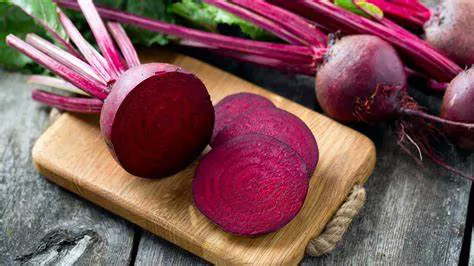High blood pressure, also known as hypertension, is a common health condition that can lead to serious complications if not managed properly. Diet plays a crucial role in controlling blood pressure, and incorporating certain foods into your daily meals can make a significant difference. Here are ten foods that people with high blood pressure should eat to help maintain healthy blood pressure levels.
10 Foods That People with High Blood Pressure Should Eat
1. Leafy Greens
Leafy greens like spinach, kale, and Swiss chard are high in potassium, which helps your kidneys get rid of more sodium through your urine. This action helps lower blood pressure. Additionally, these greens are packed with antioxidants and other essential nutrients that contribute to overall cardiovascular health.
Benefits of Leafy Greens
Rich in Potassium: Potassium helps balance sodium levels in the body.
High in Nitrates: Nitrates in greens can help dilate blood vessels, improving blood flow.
Low in Calories: These greens are low in calories and can be included in a variety of dishes without adding to calorie intake.
SEE ALSO: Which Things Reduce Blood Pressure
2. Berries
Berries, particularly blueberries, strawberries, and raspberries, are rich in flavonoids. Flavonoids are natural compounds that have been shown to prevent hypertension and lower blood pressure. Berries are also high in fiber and antioxidants, which support heart health.
Benefits of Berries
High in Flavonoids: These compounds help reduce blood pressure and improve vascular function.
Rich in Antioxidants: Antioxidants protect against oxidative stress, which can damage blood vessels.
Versatile and Delicious: Berries can be easily added to smoothies, cereals, or eaten as a snack.
3. Beets
Beets are high in nitric oxide, which can help open your blood vessels and lower blood pressure. Drinking beet juice or incorporating beets into your diet can have a significant positive impact on your blood pressure levels.
Benefits of Beets
Nitric Oxide: Promotes blood vessel dilation and reduces blood pressure.
Rich in Folate: Folate is essential for heart health.
Detoxifying Properties: Beets help in detoxification processes in the body.
4. Oats
Oats contain a type of fiber called beta-glucan, which can lower cholesterol levels and improve heart health. Consuming oats regularly can help reduce both systolic and diastolic blood pressure.
Benefits of Oats
Beta-Glucan: Helps reduce cholesterol and control blood pressure.
High in Fiber: Supports overall cardiovascular health and aids in digestion.
Satiety: Keeps you full longer, helping with weight management.
5. Bananas
Bananas are well-known for their high potassium content, which is essential for managing high blood pressure. Potassium helps balance sodium levels in the body and eases tension in the walls of blood vessels.
Benefits of Bananas
Potassium-Rich: Essential for blood pressure regulation.
Convenient Snack: Easy to incorporate into your diet on the go.
Natural Energy Source: Provides a quick energy boost due to natural sugars.
6. Fatty Fish
Fatty fish like salmon, mackerel, and trout are rich in omega-3 fatty acids, which have been shown to reduce blood pressure, decrease inflammation, and lower triglycerides.
Benefits of Fatty Fish
Omega-3 Fatty Acids: Essential for heart health and reducing blood pressure.
Anti-Inflammatory Properties: Reduces inflammation in the cardiovascular system.
Protein-Rich: Provides high-quality protein essential for muscle and tissue repair.
7. Seeds
Seeds such as flaxseeds, chia seeds, and pumpkin seeds are packed with potassium, magnesium, and other minerals known to reduce blood pressure. They also provide a good source of fiber and healthy fats.
Benefits of Seeds
Rich in Minerals: Potassium and magnesium help regulate blood pressure.
High in Fiber: Supports heart health and aids in digestion.
Healthy Fats: Contains omega-3 fatty acids which are beneficial for cardiovascular health.
8. Garlic
Garlic is known for its ability to enhance the flavor of foods, but it also has powerful health benefits. Garlic can help reduce blood pressure by increasing the body’s production of nitric oxide, which helps relax blood vessels.
Benefits of Garlic
Nitric Oxide Production: Helps relax and dilate blood vessels, reducing blood pressure.
Allicin: The active compound in garlic that has numerous health benefits, including lowering blood pressure.
Anti-Inflammatory: Reduces inflammation in the cardiovascular system.
9. Yogurt
Yogurt is a great source of calcium, an essential mineral for maintaining healthy blood pressure levels. Choose low-fat or fat-free yogurt to avoid the added saturated fats that can affect heart health.
Benefits of Yogurt
High in Calcium: Essential for heart health and blood pressure regulation.
Probiotics: Contains beneficial bacteria that support gut health, which is linked to cardiovascular health.
Versatile: Can be eaten on its own, added to smoothies, or used as a base for dips.
10. Dark Chocolate
Dark chocolate, when consumed in moderation, can have a positive impact on blood pressure.
It contains flavonoids that help dilate blood vessels, thus reducing blood pressure.
Benefits of Dark Chocolate
Flavonoids: Help in blood vessel dilation and blood pressure reduction.
Antioxidants: Protect against oxidative stress and improve heart health.
Mood Booster: Can improve mood and overall well-being, reducing stress levels that can affect blood pressure.
Conclusion
Incorporating these ten foods into your diet can significantly help in managing high blood pressure. Along with dietary changes, maintaining a healthy lifestyle that includes regular physical activity, reducing salt intake, and managing stress is essential for controlling blood pressure. Always consult with a healthcare professional before making significant changes to your diet, especially if you have pre-existing health conditions.
By making these foods a regular part of your meals, you can take a proactive step towards better blood pressure control and overall heart health. Remember, small changes can lead to significant improvements in your health and well-being.

